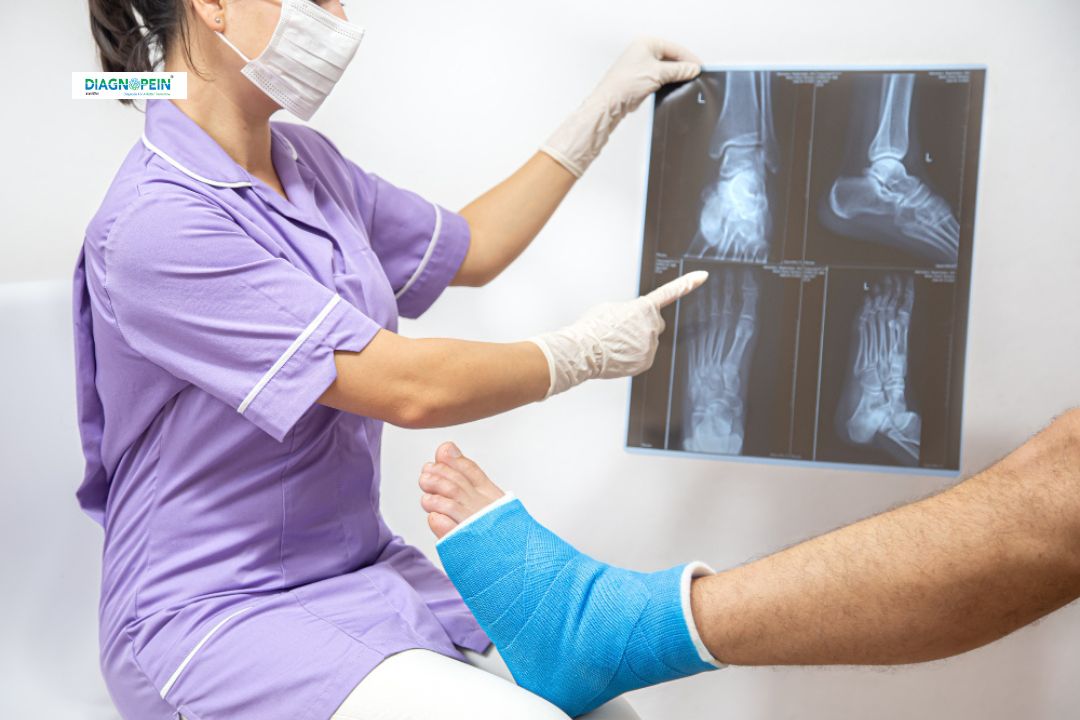Importance of Left Knee Lateral View
The Left Knee Lateral View plays a crucial role in orthopedic and sports injury diagnostics. It helps visualize the anatomical relationship between the femur, tibia, and patella in profile view, making it valuable for identifying joint degradation or bone misalignment.
This view complements the anteroposterior (AP) view by offering a deeper perspective on knee structure. It allows doctors to:
-
Evaluate joint effusion (fluid in the knee joint)
-
Assess the patellofemoral alignment
-
Detect small fractures or bone spurs
-
Plan surgical or physiotherapy interventions
At Diagnopein, radiologists use this scan to form a complete diagnostic picture, enhancing treatment accuracy and patient outcomes. It is a painless, quick, and non-invasive imaging solution for anyone experiencing left knee discomfort, stiffness, or movement restrictions.
Benefits of Left Knee Lateral X-Ray
Getting a Left Knee Lateral View done at Diagnopein offers several clinical and diagnostic benefits, including:
-
Accurate Detection: Identifies fractures, joint deformities, or post-surgical changes clearly.
-
Early Diagnosis: Helps detect early signs of arthritis, bone thinning, or soft tissue abnormalities.
-
Non-Invasive Procedure: Involves no incision or discomfort—ideal for quick, safe imaging.
-
Time-Efficient: Results are typically available within minutes.
-
High Precision Imaging: Digital equipment minimizes exposure while maximizing clarity and resolution.
This test is particularly useful for athletes, older adults, and patients recovering from recent knee trauma or surgery.
How the Left Knee Lateral View Test is Performed
At Diagnopein, the Left Knee Lateral View X-ray is a simple and quick procedure usually completed within 10 minutes. Here’s how it’s done:
-
Positioning – The patient either stands or lies on one side, with the left knee flexed slightly (about 30–45 degrees).
-
Beam Alignment – The X-ray beam passes horizontally through the knee joint from the medial to lateral side.
-
Exposure – The image is captured digitally, reducing radiation and improving resolution.
-
Review – The radiologist reviews images for bone continuity, patella position, and joint space clarity.
Key Parameters Measured:
-
Joint spacing and alignment
-
Bone density and surface contour
-
Presence of degenerative changes or fractures
-
Patellar tracking and orientation
-
Soft tissue swelling or fluid accumulation
Patients can resume normal activity immediately after the test. No special preparation is needed, though removing metal objects around the knee is recommended.
Why Choose Diagnopein for Left Knee X-Ray
Diagnopein is trusted for precision imaging and fast, panel-approved diagnostic reporting. Each scan is handled by skilled radiology professionals using advanced imaging systems that ensure accurate diagnostic visuals with low radiation exposure.








